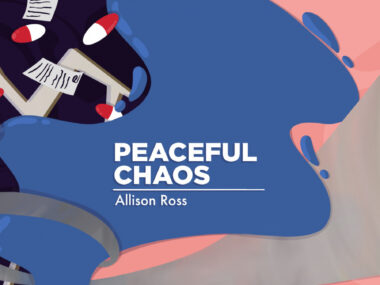Allowing a full range of emotions might help our healing
Showing anger in particular might help us feel stronger, study shows
Written by |

Warning: If you’re someone who avoids anger like the plague, you may want to sit down for this one. But stay with me — because research suggests that allowing yourself to feel anger might actually support your happiness.
I know this advice might sound strange coming from someone who just recently wrote about gratitude. I try my best to stay grounded in optimism, to adapt to the ups and downs of my ANCA vasculitis, and to focus on what I can control. But here’s the truth: What makes my gratitude possible is that I also make space for the harder emotions.
The darker days matter, too. Making room for them allows the light to get in.
We often treat emotions like they’re either good or bad, something to chase or something to avoid. But researchers are showing us that it’s not that simple. In fact, emotions such as anger might actually play a meaningful role in helping us feel more alive, more grounded, and yes — more happy.
Psychology professor Maya Tamir, PhD, explains it this way: “Happiness is more than simply feeling pleasure and avoiding pain. … All emotions can be positive in some contexts and negative in others, regardless of whether they are pleasant or unpleasant.”
In a 2017 study published in the Journal of Experimental Psychology: General, researchers considered 2,300 participants across eight countries and found that happiness wasn’t tied to feeling good emotions, necessarily; it was tied to feeling emotions that felt right. When their desired emotions matched their reality, that brought about happiness.
A 2013 study from the Polish Psychological Bulletin compared people with higher and lower natural tendencies toward anger. Interestingly, those who had more anger in their emotional repertoire consistently scored higher in subjective feelings of strength — even during recovery or hard times.
While this finding doesn’t mean that anger is always helpful or healthy, it suggests that it isn’t automatically harmful, either. In fact, it might be part of how we fight back internally, how we process injustice, or how we hang on to a sense of power when everything else feels out of our control.
Anna Alexandrova, PhD, adds a critical nuance: “Anger and hatred may be compatible with happiness, but there is no indication that other unpleasant feelings, such as fear, guilt, sadness and anxiety, are.”
That’s not to say those other emotions don’t matter — they absolutely do — but it may be that anger offers a unique kind of strength when used with awareness.
How I handle anger
Truth be told, I’ve never been great at feeling angry. I’m learning to sit with sadness, but many of the “negative” emotions still challenge me. Sometimes I experience anger secondhand — through powerful movie scenes, or when someone I know rages on my behalf. (My favorite is Sally Field’s breakdown in the 1989 film version of “Steel Magnolias.”)
Still, when I’m honest with myself, there are plenty of days when I am angry, days when living with this disease takes things I love, takes from the people I love, and robs me of who I used to be. So today, I’m naming it:
- I hate this disease for stealing my energy.
- I hate this disease for fogging up my mind.
- I hate this disease for wrecking my career.
- I hate this disease for making it hard to do basic things — drive, shop, think, even get through the day.
- I hate this disease for making me afraid of losing my insurance.
- I miss who I used to be. So much.
Letting myself name this anger doesn’t mean I’m giving up. Quite the opposite. It means I’m being honest — and in that honesty, I’m clearing a little space. Space for strength. Space for clarity. And yes, space for gratitude, too.
You don’t have to pretend everything’s OK to be a hopeful person. You can hate your disease and still fight for your life. You can feel rage and still believe in healing. You can scream into a pillow, then take your meds, then laugh with someone you love — all in the same day.
Emotions aren’t the enemy. Suppressing them might be.
Note: ANCA Vasculitis News is strictly a news and information website about the disease. It does not provide medical advice, diagnosis, or treatment. This content is not intended to be a substitute for professional medical advice, diagnosis, or treatment. Always seek the advice of your physician or other qualified health provider with any questions you may have regarding a medical condition. Never disregard professional medical advice or delay in seeking it because of something you have read on this website. The opinions expressed in this column are not those of ANCA Vasculitis News or its parent company, Bionews, and are intended to spark discussion about issues pertaining to ANCA vasculitis.






Leave a comment
Fill in the required fields to post. Your email address will not be published.